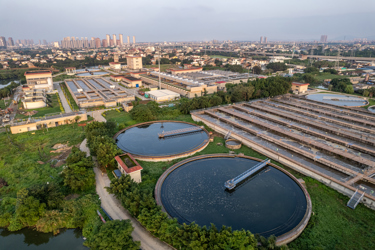Study Shows Biogas Can Make Wastewater Treatment Carbon Neutral

Although essential to environmental and community health, the wastewater industry consumes incredible amounts of energy and is carbon intensive. Wastewater treatment plants (WWTPs) account for 4% of total energy consumption and 25% of the water sector’s energy use. In the U.S., for example, WWTPs generated 20 million metric tons (MMT) of CO2-equivalent in 2017.
A recent study finds that wastewater has the potential to be carbon neutral or even carbon negative. Researchers insist that wastewater contains approximately five times more embedded energy than is required for its treatment. This includes thermal energy (~80%), chemical energy (~20%), and hydraulic potential (<1%). It also contains valuable resources such as 16.6 MMT of nitrogen, 3 MMT of phosphorus, and 6.3 MMT of potassium annually worldwide. The study claims that capturing and digesting waste could generate 20 billjon m3 to 50 billion m3 of biogas, enough to provide clean cooking fuel to between 60 and 180 million households.
Get unlimited access to:
Enter your credentials below to log in. Not yet a member of Water Online? Subscribe today.
